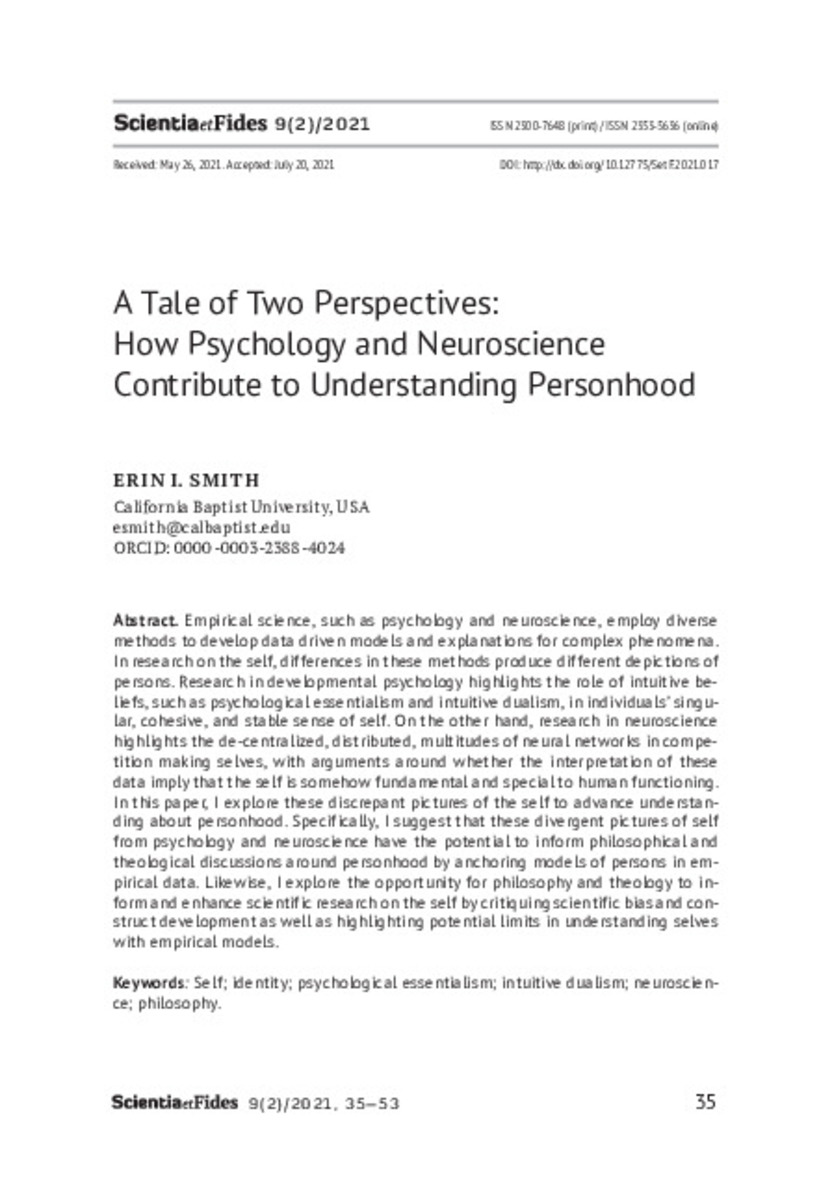A Tale of Two Perspectives: How Psychology and Neuroscience Contribute to Understanding Personhood
Keywords:
Self
identity
psychological essentialism
intuitive dualism
neuroscience
philosophy
Publisher:
Uniwersytet Mikołaja Kopernika
Citation:
Smith, E.I. (Erin I.). "A Tale of Two Perspectives: How Psychology and Neuroscience Contribute to Understanding Personhood". Scientia et Fides. 9 (2), 2021, 35 - 53
Statistics and impact
0 citas en

0 citas en

Items in Dadun are protected by copyright, with all rights reserved, unless otherwise indicated.








